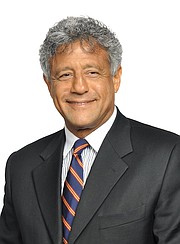By RASHAD ROLLE
Tribune Senior Reporter
rrolle@tribunemedia.net
THE government will not seek security for costs from environmentalists in the judicial review proceedings involving Bahamas Petroleum Company’s exploratory oil drilling, drawing praise from attorney Fred Smith for removing a potentially significant obstacle.
This revelation came as lawyers representing environmentalists and BPC tussled during a Supreme Court hearing yesterday over whether BPC should be added as a respondent in the matter.
“We applaud the government for respecting the rule of law and the judicial process,” lawyers representing Waterkeepers Bahamas and Save The Bays said in a press statement. “They have removed a major obstacle to the hearing of this case. So many times in the past, public interest litigation has been derailed and priced out of justice by security for cost applications, which would require those bringing actions in the public interest to ensure due process and lawful development, to put up funds before they can actually have their day in court.
“Initially the government did apply for security but yesterday indicated to the court that it was withdrawing. From the beginning, we have sought to have a trial on the merits of the case and avoid delays and obstructions that prevent us accessing the courts until it is too late. Time is of the essence, the drill bit is turning, and if we are successful it would be a shame for this to have been an exercise in futility. The government has taken a huge step in the direction of the swift administration of justice and we thank them for their responsible behaviour.”
Making the case for why BPC should be included as a respondent to the action, BPC’s lawyer, Clare Montgomery, QC, argued that the company and its affiliate, Bahamas Offshore Petroleum, will be affected by the judicial review proceedings as the companies which respectively received the environmental authorisation to drill and holds the license.
She argued that the judge, Justice Petra Hanna-Adderley, will eventually require BPC’s evidence on the “potential prejudice and detriment that may be occasioned” by quashing the environmental authorisation.
She said the companies would suffer financially if the authorisation is quashed.
She noted that if BPC is added as a respondent, the company will have the right to file evidence, to be heard, to seek disclosure, to seek security of cost and to seek permission to appeal.
“In our submission, that clearly is the requirement of justice in this case given how closely the interests are affected,” she said.
“It would do a fundamental injustice to companies that are going to be very significantly affected potentially by the public law relief that’s sought if you were to hold they were not either to be permitted to intervene under the current dispensation…or that they were not potentially directly affected so as to indicate to Mr Smith that when he does finally issue his notice of motion that he is to serve it on them as persons directly affected.”
Mr Smith insisted that BPC has no direct interest in the case and that BOP has only an indirect interest.
“To the extent that BOP might be the holder of licence,” he said, “we have every intention to serve them with the notice of motion.
“They had a direct interest in the stay application and we had no objection to them being heard on the stay application because they had a direct financial interest that was affected, but there is nothing which now affects them. We have no (issue) with those companies, whoever they may be. Our (issues) are with the government respondents. Order 15 Rule 6 exists for the determination or the opportunity for someone in an existing action to be able to come into it to have an issue determined but there is nothing that they are affected by between now and the issuance of the notice of motion.”
Mr Smith suggested BPC wants to be involved in the proceedings as a respondent to frustrate environmentalists.
BPC, he said, wants to be included “to file evidence, so that they can start asking for discovery, so that they could resist discovery, so they could ask for security for costs, so they could do everything under the sun as if we sued them.
“We have no issue with the oil companies. Our issue is with the government and the process on whether or not they have complied with the relevant statutes. This is an attempt by a party that we have not sued, that we have no cause of action against, to come into our action to insinuate themselves, to run interference for the government, to wage trench warfare against us, to ramp up costs and to try and oust us from the seat of the opportunity of getting a judgment on the merits.”





Comments
TalRussell 5 years, 1 month ago
Something is amiss here!
It has been somewhat of a strain on braincase trying to follow this case. Is the imported Englishman's Queen's Counsel, hired represent the government, the environmentalists, or the sludge oil drillers? At times the viewed by the AG's office to be that much more learned than any local QC -,sure seems to be appearing to represent the interests of all threeof the litigants appearing before the court?
Hard harder tell whether the plan is for the imported QC's bill to be split three ways between all three the litigants? Shakehead a quick once for upyeahvote, Twice for not?
Bahama7 5 years, 1 month ago
Very strange. BPC will take them apart in court with such a flimsy case.
Meanwhile, if they strike oil ... well then money talks and there is no going back in my opinion.
I will be rocking up to Leno with savings next week to buy oil shares.
Sign in to comment
OpenID